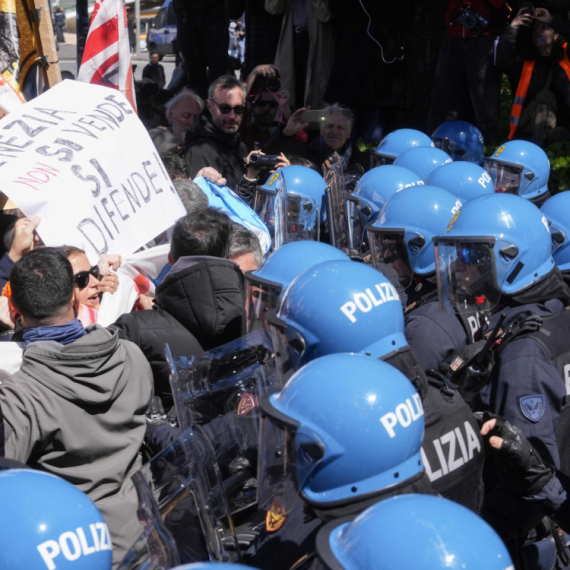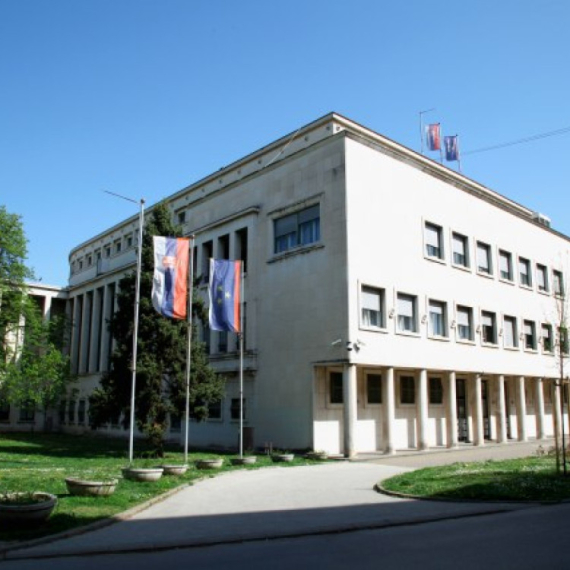Witness protection big problem in Kosovo
Problems plaguing witness protection scheme unlikely to be addressed until status issue is resolved, analysts argue.
Saturday, 28.04.2007.
13:00

Witness protection big problem in Kosovo
“If witnesses aren’t able to come forward or are unwilling to come forward then there can’t be justice,” said Julie Chadbourne, representative for the International Helsinki Federation for Human Rights.Observers point to Kosovo’s tight-knit community and a prevailing climate of fear as major obstacles in encouraging witnesses to go to court. Once a witness agrees to testify in the most serious of cases, such as a war crimes trial, they may face the threat of retribution.
They face being badly injured or murdered, but there are other insidious deterrents. “You could lose your job by testifying,” she said.
As one source at the UN administration in Kosovo says, “Most people see witnesses as betrayers, especially when it comes to war crimes. This is the idea of almost 100 per cent of the population.”
In some cases, witnesses and their families are brought under the protection of the UN Witness Protection Unit, which houses them at secret locations in Kosovo.
“You can’t just take the witness,” said Mark Lasser, legal system monitor at the OSCE Mission in Kosovo. “You may need to relocate an entire family, which can include relatives and involve many people.”
Those in the safe houses are watched 24 hours a day, seven days a week. Food, drink and medical supplies all have to be brought to them by their international minders.
“They are frightened that they could be located and killed,” said the UN source. “They’re not able to go back to their community or village. They wouldn’t be accepted.”
It is near impossible to relocate witnesses within Kosovo. “In this tiny [place] everybody knows each other and where a person is living,” continued the source. Their best hope is to be relocated abroad through the UN witness protection programme.
Established in 2002, the programme has to date relocated seven witnesses and 36 family members abroad. In all but one case, the witnesses were appearing in war crimes trials.
Relocation agreements are made between heads of country liaison offices in Kosovo and the UN-run Department of Justice.
But it is difficult to find foreign governments willing to host these judicial refugees, the UN source explained.
The continuing uncertainty over Kosovo’s future status is one reason why permanent arrangements are lacking. “Kosovo is not a country, and there’s no country that wants to make deals with a non-country,” continued the source.
Many European witness relocation schemes are reciprocal arrangements, whereby witnesses from one country will take up a new life in another, and vice versa. But few if any rich western European countries would wish to relocate its citizens in poverty-stricken Kosovo.
Other obstacles include lack of financial support for the witnesses and their families and fears that witnesses take security problems wherever they go. At any moment, there is the potential that they could be traced and attacked or murdered.
The authorities in Kosovo, however, are not always able to protect confidential information, say international observers.
The OSCE, which monitors the criminal justice system, says the Witness Protection Unit lacks a clear system for filing, sharing, storing, and ultimately destroying sensitive information. This has the potential to “jeopardise the safety of protected witnesses”, according to one recent report.
Kosovo needs a complete witness protection law that provides for the change of identity and relocation for witnesses, says the organisation. Judges and prosecutors should make use of existing provisions in the law, such as non-public hearings, video-conferencing or videotaped examination, it says.
Lasser, co-author of the OSCE report, admits that the current system is flawed. “There certainly needs to be some improvement with witness protection,” he said. “It’s a big problem.”
In nearly eight years, there have been 21 convictions for war crimes cases handled by international prosecutors in Kosovo, according to the Department of Justice. Fourteen of these convictions took place between 1999 and 2002.
Since 2003, however, despite 61 investigations handled by the international authorities, there have so far only been seven convictions of war crimes suspects.
“The system of witness protection in Kosovo exists only on paper,” said Marek Marczynski, a representative for Amnesty International, who believes this has an impact beyond war crimes cases, affecting anti-trafficking and other issues, “The reason is probably lack of funds and capacity.”
But as the International Criminal Tribunal for the former Yugoslavia nears the end of its mandate, prosecutors have publicly encouraged Kosovo’s authorities to pursue war crimes cases at home.
Delays in improving witness protection legislation continue to cast doubt on Kosovo’s capacity to cope with new war crimes trials. “It’s a serious question whether war crimes can be prosecuted at all in Kosovo,” said Chadbourne.
The problems, argues Chadbourne, extend beyond resources and legislation. The rule of law has been undermined by the actions of local politicians and international diplomats, she says.
To illustrate her point, Chadbourne refers to the visit of Kosovo prime minister Agim Çeku to convicted war crimes suspect Selim Krasniqi while he was in detention. “He told Krasniqi that Kosovo needed more good men like him,” she said. Krasniqi was released soon after, pending retrial.
The international community’s statements of support for war crimes indictee Ramush Haradinaj have also undermined faith in the justice system, she says.
At the time of his indictment, the then UN chief in Kosovo, Soren Jenson Peterson, praised the former prime minister’s “dynamic leadership, strong commitment and vision” and said he was “saddened to no longer be working with a close partner and friend”.
Observers point to these incidents as further discouragement for witnesses to come forward to testify against ethnic-Albanian war crimes suspects.
















Komentari 7
Pogledaj komentare